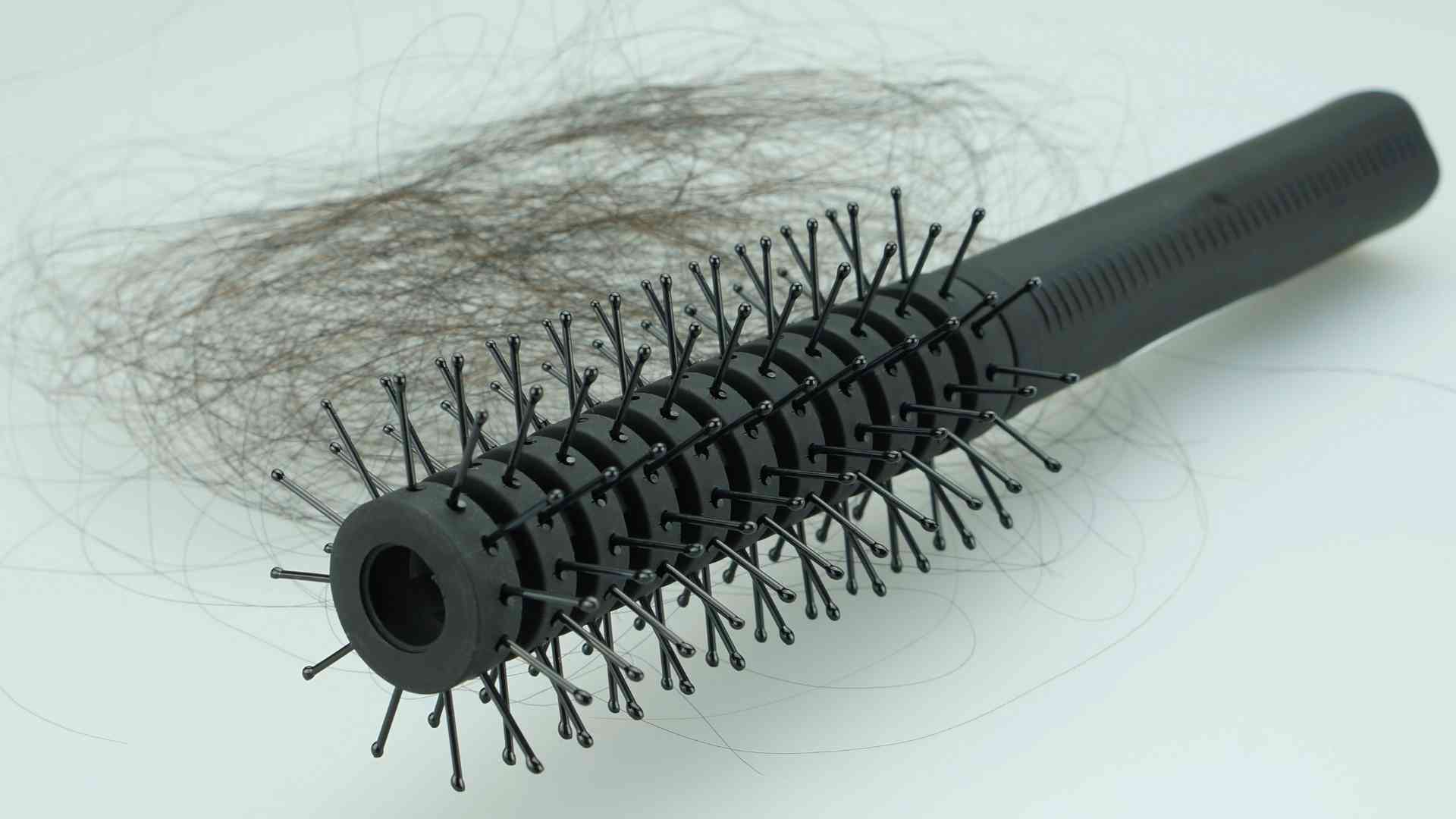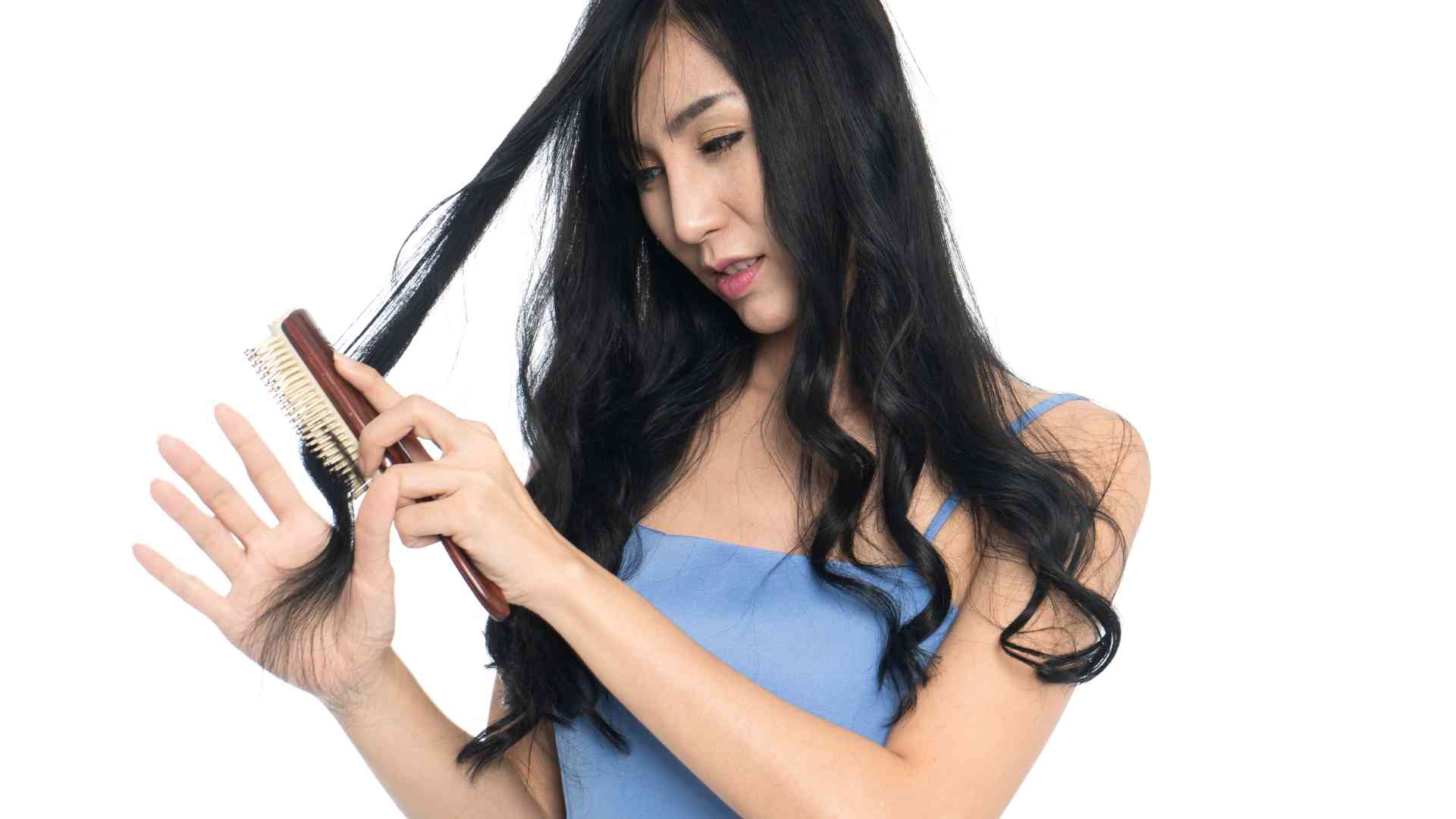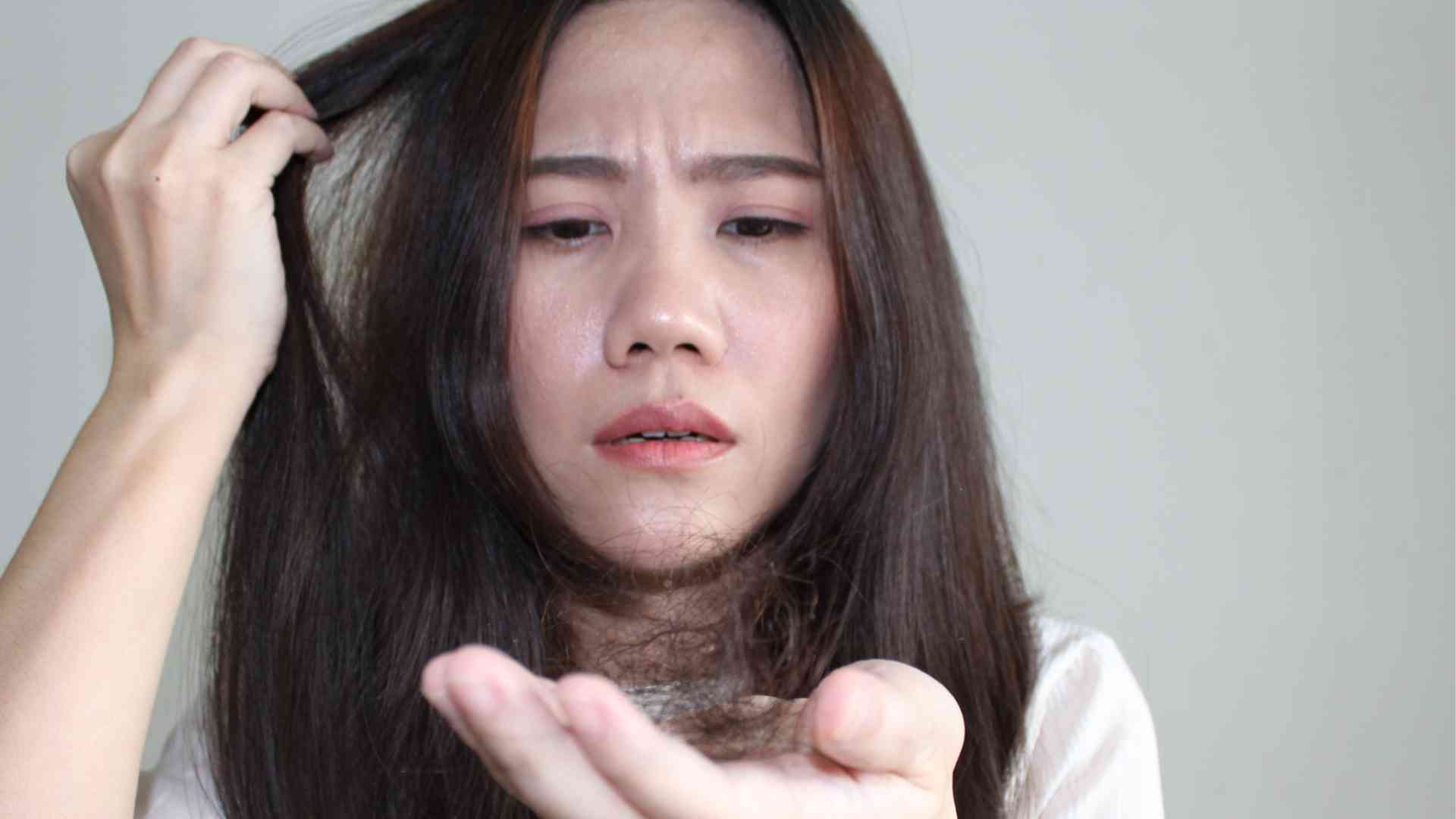Hair, a defining feature of our identity, serves as a canvas upon which we express ourselves and a source of self-confidence. It frames our face, tells a tale of personal style, and reflects our inner vitality. While hair loss has often been associated with men, its impact extends beyond gender boundaries. Women, too, grapple with the complexities of hair loss, seeking answers in a quest for lasting solutions.
In this exploration of hair health, we delve into a topic less spoken of: the intricate relationship between high testosterone levels and hair loss in women. Hormones, the unseen orchestrators of our bodies, play a pivotal role in the balance between growth and loss. We unravel the mechanism through which elevated testosterone levels contribute to hair thinning and offer insights into potential remedies. By understanding this multifaceted connection, we empower women with the knowledge to take charge of their hair health and journey toward renewed confidence.
Testosterone and Its Role in Women
While often associated with masculinity, testosterone’s influence reaches beyond the boundaries of gender. Found in both men and women, this hormone plays a significant role in various physiological functions. In women, testosterone is present in smaller quantities compared to men, yet its impact is no less significant.
Navigating the Testosterone Spectrum: Normal Levels and Functions
In women, testosterone levels typically range between 15 to 70 ng/dL. This relatively low level is essential for various functions, including the maintenance of bone density, muscle mass, and overall energy. Testosterone also contributes to the regulation of mood, cognitive function, and libido. Its presence in women underscores the delicate balance of hormones that govern overall health.
Harmony in Hormones: The Quest for Balance
Optimal health hinges on the intricate dance of hormonal balance. Hormones like estrogen, progesterone, and testosterone interact in a symphony that governs various bodily processes. An imbalance in these hormones can lead to a range of health issues, including hair loss. Understanding and maintaining this equilibrium is crucial for not only hair health but also overall well-being.
As we delve deeper into the connection between high testosterone levels and hair loss in women, we uncover the intricate web of hormones that shape our bodies and lives. By fostering an awareness of this delicate interplay, we empower women to navigate the complexities of hormonal health and seize control of their journey toward balanced well-being.
Androgenetic Alopecia (Female Pattern Hair Loss) Is the Most Common Cause of Hair Loss in Women
Androgenetic alopecia, often referred to as female pattern hair loss, stands as the prevailing cause of hair loss among women. This condition is characterized by gradual hair thinning, predominantly at the crown and top of the scalp. While traditionally associated with men, androgenetic alopecia also affects women, making it a shared concern across genders.
Androgens: Unraveling Their Influence
At the heart of androgenetic alopecia lies the intricate role of androgens, a class of hormones that includes testosterone. Androgens are present in both men and women, albeit in differing levels. When these hormones are produced in excess, they can bind to hair follicles’ receptors, triggering a process known as follicular miniaturization. This process results in smaller and weaker hair strands, ultimately leading to hair thinning.
Genetic Predisposition: Unveiling the Family Connection
Genes wield a significant influence over our susceptibility to androgenetic alopecia. Family history often emerges as a key factor, highlighting the genetic predisposition that contributes to this condition. Inheriting specific genes can make hair follicles more sensitive to androgens, thereby increasing the risk of hair loss.
Understanding the genetic and hormonal factors underpinning androgenetic alopecia offers women insights into the intricate mechanisms governing hair health. By recognizing the role of androgens and genetics, we arm ourselves with the knowledge to make informed decisions about potential interventions and embark on a journey toward hair health reclamation.
How High Testosterone Levels Affect Hair Follicles?
Elevated testosterone levels, while a natural occurrence in both men and women, can cast a shadow over the health of hair follicles. As these levels surpass the norm, they can initiate a cascade of events that profoundly affect the delicate balance of the hair growth cycle.
The Shrinkage of Hair Follicles: A Telltale Sign
Excessive androgens, including testosterone, have the potential to shrink hair follicles—a phenomenon known as follicular miniaturization. This process occurs gradually and affects various phases of hair growth. Initially, hair strands become finer and shorter, a direct result of the shrinking follicles. Over time, these follicles can become inactive, leading to a decrease in the production of new hair.
The Unfolding of Hair Loss: A Gradual Journey
The impact of high testosterone levels on hair follicles is a gradual progression. As follicles shrink and hair becomes increasingly fine, the overall density of hair diminishes. Hair loss typically follows a specific pattern, often manifesting as widening part lines, visible scalp, and thinner hair around the crown and temples. While the process is gradual, its effects can be emotionally significant, influencing self-esteem and confidence.
Understanding the intricate relationship between high testosterone levels and hair follicles empowers women to address hair loss proactively. By recognizing the signs and exploring potential interventions, women can navigate the journey toward hair restoration with informed decisions and a sense of empowerment.
Hormonal Imbalances and Hair Thinning
Hormonal imbalances, a complex interplay of factors, can cast a profound shadow over hair health. One significant contributor to elevated testosterone levels in women is polycystic ovary syndrome (PCOS), a condition that unveils the intricate connection between hormones and hair thinning.
PCOS: A Complex Hormonal Equation
PCOS, characterized by irregular menstrual cycles and the formation of small cysts on the ovaries, disrupts hormonal harmony. In PCOS, the ovaries produce excessive amounts of androgens, including testosterone. This surge in androgens can lead to a dual manifestation—excess hair growth (hirsutism) and hair thinning (androgenetic alopecia)—an enigmatic combination of symptoms.
Insulin Resistance: A Common Thread
Insulin resistance, a hallmark of PCOS, acts as a common thread linking high testosterone levels and hair loss. Elevated insulin levels stimulate the ovaries to produce more androgens, contributing to hormonal imbalances. This hormonal turmoil not only triggers hirsutism but also fosters an environment conducive to hair thinning.
Understanding the intricate relationship between hormonal imbalances and hair thinning, particularly in the context of PCOS, provides women with a clearer picture of the complexities they face. By identifying these underlying factors and seeking suitable interventions, women can address the multifaceted nature of hair loss and take proactive steps toward hormonal health and renewed hair vitality.
Managing High Testosterone-Related Hair Loss

Managing hair loss triggered by high testosterone levels requires a comprehensive approach that encompasses both medical insights and lifestyle adjustments. Recognizing the significance of seeking professional guidance is the first step in embarking on this journey.
Expert Consultation: The Cornerstone of Care
Before embarking on any treatment plan, consulting a healthcare professional is imperative. They can diagnose the root cause of hair loss, which may involve high testosterone levels or underlying conditions like PCOS. This diagnostic clarity forms the basis for tailored interventions.
Lifestyle Modifications: Empowering Wellness
Embracing a holistic approach is pivotal. Lifestyle modifications, including stress reduction, regular exercise, and a balanced diet, contribute to hormonal balance and overall well-being. Adequate sleep and proper hydration also play a crucial role in nurturing hair health.
Medications and Hormone Balancing: Targeted Interventions
Medications, ranging from anti-androgens to hormone-regulating drugs, offer targeted solutions for high testosterone-related hair loss. These medications aim to mitigate the impact of excessive androgens and restore the hormonal equilibrium necessary for hair growth.
Topical Treatments and Haircare: Nurturing Growth
Topical treatments, such as minoxidil, can stimulate hair follicles and promote growth. Specialized haircare products designed to counteract hair thinning can also be valuable additions to your regimen.
Navigating the landscape of high testosterone-related hair loss is a journey guided by expert advice and empowered by proactive choices. By integrating medical insights, lifestyle changes, and suitable interventions, women can reclaim control over their hair health and embark on a path that resonates with empowerment and rejuvenation.
Medications and Interventions

In the realm of managing high testosterone levels and its impact on hair health, medications and targeted interventions emerge as vital allies. These medical solutions, often prescribed under the guidance of healthcare professionals, offer tailored strategies to restore hormonal equilibrium and counteract the effects of excessive androgens.
Anti-Androgens and Hormone Regulation: A Dual Approach
Anti-androgens, a class of medications, are designed to counteract the effects of androgens, including testosterone, on hair follicles. These medications work by inhibiting the binding of androgens to follicle receptors, effectively tempering their influence. This intervention can slow down the process of follicular miniaturization, promoting thicker, healthier hair strands.
Birth Control Pills: A Multifaceted Solution
Birth control pills, known for their contraceptive benefits, can also be employed as a hair loss management tool. Some birth control formulations contain hormones that counteract androgens’ effects, helping to reduce hair thinning and maintain a healthier hair density.
Individualized Treatment: The Guiding Principle
It’s crucial to highlight that medications and interventions must be approached with a personalized mindset. Each woman’s body responds differently, necessitating tailored treatment plans. These plans should be designed and overseen by healthcare professionals who consider the individual’s medical history, hormonal profile, and specific needs.
As we delve into the world of medications and interventions, it’s a reminder that the path to hair health is paved with expert guidance and individualized care. By collaborating with healthcare professionals, women can harness the potential of these interventions and stride forward with confidence on their journey toward renewed hair vitality.
Holistic Approach to Hormonal Balance
In the quest to reclaim hormonal balance and foster hair health, a holistic approach stands as a beacon of empowerment. Beyond medications and interventions, nurturing overall well-being plays a pivotal role in steering hormones toward equilibrium.
Weight, Exercise, and Nutrition: The Trio of Vitality
Maintaining a healthy weight through regular exercise and a balanced diet serves as a cornerstone of hormonal health. Physical activity not only aids in managing insulin levels but also promotes the production of endorphins, contributing to stress reduction. A balanced diet, rich in nutrients, nourishes the body and supports hormonal harmony.
Stress Management: A Shield Against Imbalance
Stress, an ever-present companion in modern life, can significantly impact hormone levels. Engaging in stress management techniques—whether through meditation, deep breathing, or engaging hobbies—can mitigate the effects of stress on hormonal equilibrium. By managing stress, we offer our bodies a shield against the potential disruptions it can cause.
Sleep: The Restorative Elixir
Adequate sleep is not just a luxury; it’s a critical component of hormonal well-being. Poor sleep patterns can disrupt hormone production and regulation, impacting everything from mood to metabolism. Prioritizing quality sleep supports hormonal balance, contributing to both physical and mental health.
The Ripple Effect: Holistic Hormonal Harmony
The intricate dance of hormones is influenced by a myriad of factors. Adopting a holistic approach that nurtures physical, emotional, and mental well-being creates a ripple effect that resonates throughout the body. By embracing healthy lifestyle choices, managing stress, and prioritizing rest, women pave the way toward achieving and maintaining hormonal harmony—a cornerstone of vibrant hair health.
As you embark on the journey of holistic hormonal balance, remember that every choice you make reverberates through your body, influencing not only your hair but your overall vitality. Empower yourself with the tools of well-being, and witness how the symphony of hormones responds with a harmonious melody of health.
Seeking Professional Guidance

In the intricate tapestry of hormonal health and hair loss management, the compass that points true north is the expertise of healthcare professionals. Seeking their guidance isn’t just a recommendation—it’s a crucial step toward accurate diagnosis, effective treatment, and lasting well-being.
A Professional Touch: Precision in Diagnosis and Treatment
Hair loss stemming from high testosterone levels requires a nuanced understanding of individual circumstances. A healthcare professional can assess your medical history, conduct necessary tests, and offer insights into the root cause. This precision in diagnosis leads to tailored treatment plans that address your unique needs.
Effective Management: A Collaborative Journey
High testosterone levels might seem like an enigma, but with proper guidance, it’s a challenge that can be managed effectively. Healthcare professionals can offer interventions, medications, and lifestyle adjustments that align with your goals. With their support, you can navigate the landscape of hormonal health and embrace a path that resonates with empowerment.
A Caution Against Self-Diagnosis: Choose Wisdom Over Assumption
Amid the sea of information, the allure of self-diagnosis and self-treatment might beckon. However, the complexities of hormones demand a discerning eye, trained to unravel the intricacies. Resist the temptation to self-diagnose, for inaccurate assumptions can lead down a path of confusion and potential harm.
As you journey toward hormonal harmony and hair health, let the guidance of healthcare professionals light the way. By making the conscious choice to consult experts, you embark on a voyage that not only restores your hair’s vitality but also reflects your commitment to wellness anchored in wisdom.
Watch Causes of High Testosterone in Women | Video
Top 5 FAQs and answers related to Can High Testosterone Cause Hair Loss for Women?
How do high testosterone levels contribute to hair loss in women?
Elevated testosterone levels can lead to a condition known as androgenetic alopecia or female pattern hair loss. Excess testosterone and other androgens can shrink hair follicles, resulting in shorter, thinner hair strands. This process, known as follicular miniaturization, gradually leads to hair thinning and loss over time.
Are high testosterone levels the sole cause of hair loss in women?
While high testosterone levels can contribute to hair loss in women, it’s often a complex interplay of factors. Conditions like polycystic ovary syndrome (PCOS) and genetic predisposition can also play a role. Hormonal imbalances, including excess androgens, disrupt the natural hair growth cycle and contribute to hair thinning.
Can high testosterone levels cause both excess hair growth and hair thinning simultaneously?
Yes, high testosterone levels can lead to a paradoxical situation where women experience both hirsutism (excess hair growth, typically on the face and body) and hair thinning (androgenetic alopecia) concurrently. This dual manifestation often occurs in conditions like PCOS, where hormonal imbalances are prevalent.
Can hormonal imbalances other than high testosterone levels cause hair loss?
Absolutely, hormonal imbalances involving other hormones like estrogen, progesterone, and thyroid hormones can also contribute to hair loss in women. Each hormone has a specific role in maintaining hair health and growth, and imbalances can disrupt this delicate equilibrium.
Can high testosterone-related hair loss in women be treated?
Yes, high testosterone-related hair loss can be managed effectively. Consulting a healthcare professional is essential for accurate diagnosis and treatment. Medications like anti-androgens and hormonal birth control, lifestyle changes, stress management, and topical treatments are some of the approaches that can help restore hair health and mitigate the effects of high testosterone levels on hair loss.
Conclusion

In the intricate journey of hair health, the role of hormones—particularly high testosterone levels—unveils a profound impact on women’s well-being. This exploration has illuminated the connection between hormonal imbalances and the gradual thinning of hair, shedding light on a challenge that deserves proactive attention and personalized solutions.
Empowerment Through Knowledge: Understanding the Link
The effects of high testosterone levels on hair loss in women are multifaceted. From shrinking hair follicles to altering the hair growth cycle, the influence of hormones touches every strand. Androgenetic alopecia, the most common cause of hair loss in women, is often the result of hormonal imbalances, such as excess testosterone. This knowledge equips women with a deeper understanding of the underlying factors behind hair thinning.
Proactivity in Hormonal Health: A Choice for Renewed Vitality
Proactivity stands as the beacon guiding us through the maze of hormonal intricacies. If you’re experiencing hair loss, consulting a healthcare professional is paramount. Expert diagnosis and tailored treatment plans ensure that the steps you take align with your unique needs.
A Reminder of Possibility: Reclaiming Hair Health
Hormonal imbalances might cast a shadow, but they’re not insurmountable. The journey toward hormonal harmony and hair health encompasses lifestyle adjustments, targeted interventions, and expert guidance. As we conclude this exploration, remember that while hormones influence our journey, they don’t define it. By embracing knowledge, seeking professional advice, and choosing to be proactive, women can reclaim the reins of their hair health and stride forward with confidence and renewed vitality.
In the world of hormones and hair, empowerment reigns supreme. Let the awareness of high testosterone’s impact inspire a commitment to well-being, weaving a tapestry of resilience and vibrant hair health.
Please share this Can High Testosterone Cause Hair Loss for Women? with your friends and do a comment below about your feedback.
We will meet you on next article.
Until you can read, How Environmental Pollution and Toxins Lead to Hair Loss?